Brother Love: `The Water is Boiling’
On a brutally cold day in January 2022: five hours and a new four-word "safe phrase" with my brother Phil
Last night toward sunset, my brother Phil texted me a brief video that he shot while riding the CTA. He was likely returning to Chicago from his day out panhandling in the suburbs.
Based on his commentary, I gathered that he knew it was a Friday but was foggy on the month. He ruled out “November” within moments of uttering it.
In my book, this correspondence counts as very good news. I’m just glad that his phone, the communication lifeline between us, is back in service after only a few days’ hiatus.
For many years, Phil has been month-to-month with a steady stream of phones that change as frequently as the seasons. Usually, those 30 days sneak up on him more swiftly than the money he accumulates at his intersection (minus his travel, alcohol and heroin expenses).
That struggle to stay in touch has long marked our relationship; today, in this latest installment of Brother Love, it surfaces as an issue.
For those new to The Inside Edge, a little background: since May, I have published nine essays about Phil and our relationship. All are part of a series that I have dubbed Brother Love, the name that Phil and I have come to call each other.
The first of those pieces, from an October 2020 visit I made to his tent in the woods, is here:
Along the way came a four-part series in July about my getting him to a rehabilitation facility in April 2021, wrapping up with Super 8 Sequester. The most recent column was four weeks ago, about an emotional rollercoaster December 2021 evening when we went to a Three Dog Night concert.
**********
Today, we move one month onward from that experience, when Phil and I shared a good chunk of a brutally cold day and I immediately jotted down this account:
Saturday, January 15, 2022
I spent close to five hours with Phil today, dropping him off about 5 p.m. at the Austin stop along the Eisenhower Expressway. His next errand was taking the “el” a few stops to Pulaski, where he would make his near-daily heroin purchase in a dicey neighborhood on Chicago’s West Side.
It capped what has become our brotherly routine: a time of fraternal affection and melancholy resignation that leaves me wondering if this is the last time that I will ever see Phil alive.
Such a morbid shadow, the same undercurrent that has coursed through our relationship for almost the entirety of Phil’s decade in Chicago.
Our last, brief interaction came 20 days ago, also by a train stop. The night after Christmas, Phil had come out from his apartment to drop off a bevy of Christmas presents for my family—coats, gloves, socks, and other items that he had accumulated from second-hand shops and donations.1
I made the quarter-mile drive from my home to transfer it into the van, shooting a half-minute video of Phil’s narration for my family’s later viewing.
Thereafter: 17 days of silence.
First, Phil’s phone got turned off when he didn’t pay his bill. Then, a day or two later, the phone was swiped as he dozed off on the train. He was returning home from another day making the five-hour commute to his two- or three-hour panhandling shift.
When he called three days ago, I quickly labeled his latest number “Phil Baron 2022.” That leaves room for “Phil B. Spring 2022” or “Phil Summer 22” or any others that follow. His prior numbers were coded Phil B, Phil B 2016, Philip X Baron, Phil X Baron II, Philip X Baron21, Phil 2017, Phil 2019, Phil 2020, Phil 2021 and Phil July 2021.2
Today’s `Hook’
The “hook” to meet up today was something he’s been telling me about for two months: I needed to go to his apartment to pick up a gamer’s chair, a rocking chair-glider, and a pony-chair that kicks into bucking action and could be ideal for a family with young kids.
After moving up our meeting time by pledging him the $20 he said he needed to make panhandling today (for his heroin purchase), I made a point of wearing the Calvin Klein jacket that Phil gave me for Christmas; he made a point not to wear gloves, despite the bitter cold.
He has also kept his apartment windows open to the wintry elements. His rationale is that it helps him acclimatize not only to his longstanding panhandling practice, but in case he loses his apartment and returns to homelessness.
Eight months after walking out of a drug-and-alcohol rehab and into a fully subsidized studio apartment, Phil is hedging, almost betting against his ability to maintain his residency in Chicago’s Edgewater neighborhood.
Sadly, there may be more than a little wisdom in that mindset. The circumstances that enable his occupancy are hazy—to him, as well as to me. When he doesn’t have a scrap of paper handy at a key moment, he might scrawl a phone number or other piece of crucial information from a social-service contact on the palm of his hand.
Eight months after walking out of a drug-and-alcohol rehab and into a fully subsidized studio apartment, Phil is hedging, almost betting against his ability to maintain his residency.
In short, disorder and disorganization reign. And those conditions worsen when he lapses in paying his cell phone bill. Phil misses appointments, whether medical (such as refilling his heart medication) or social service (to help fulfill whatever is required to keep his apartment).
His day-to-day includes a chronic fear of the moment he hears a knock on his door that signals he’s got to get out. On top of his heroin addiction, Phil is continually intoxicated. Daily, he consumes two fifths of vodka that he mixes with soda and sips with steadfast regularity.
These are his coping medicines, and it has gotten so extreme that he wakes every two hours to go to the bathroom and have some sips.
I gleaned that last detail when I asked what time he wakes up in the morning.
“Two…four…six…eight…”
I half-expected him to add, “Who do we appreciate?”
A Lunch for Starters
On this day, our first order of business was walking to Potbelly, where Phil procured a pair of meatball sandwiches via free-sandwich coupons that were among his panhandling spoils.
Next, we visited an old friend, Jason, who was out on a long walk in River Forest. They hadn’t seen each other in at least two years, and Phil was eager to reconnect when I broached the idea. Their 15 minutes together ended with Phil learning Jason’s neighbor, for whom Phil had done some work for, has cancer.
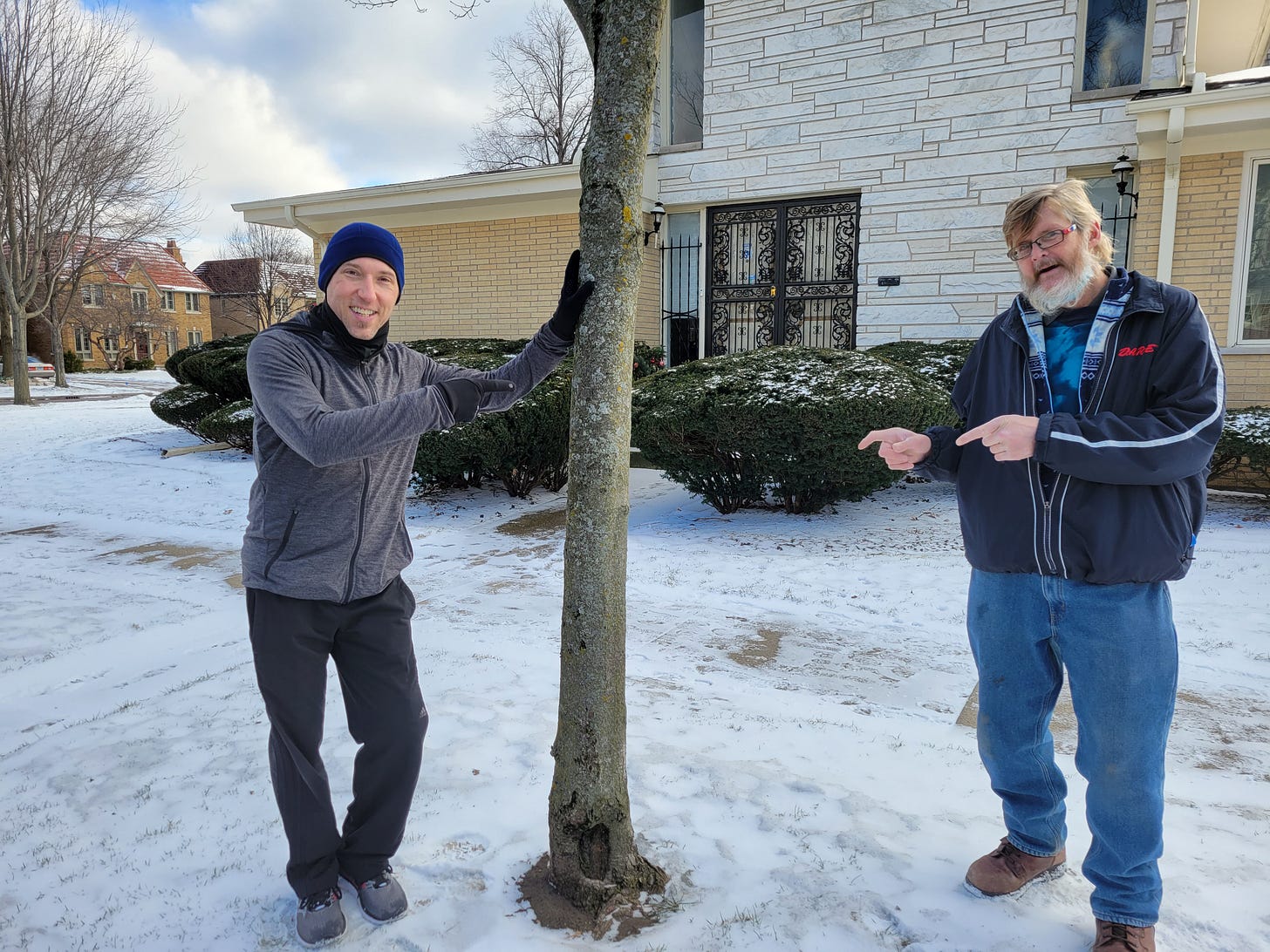
“I wish he hadn’t told me that,” Phil said, choking up in the passenger seat. “I just need a minute.”
Our conversation turned to the Three Dog Night concert a month ago. I showed Phil some videos that he watched with fresh eyes. “I acted like I was at a Dead concert,” he chuckled. “Was I a real ass that night?”
In so many words, I said that indeed he was, at times.
It was a roller-coaster night, I elaborated, and the experience ran the spectrum—both great moments and some that teetered on the edge. “You went right up to the line,” I added, “and had as good a time as you could without getting thrown out.”
4 Magic Words: `The Water is Boiling’
In response to this heads-up that his behavior had been on the brink, Phil shared a four-letter “safe phrase” that I should employ whenever he’s getting out of control: “The water is boiling.”
By now we were almost all the way back to his apartment. We took a brief detour off Lake Shore Drive to the lakefront near Belmont Harbor.
Awed by the ferocious undulations of the icy water as it splashed ashore, we found Lake Michigan to be far from boiling. I was again struck by Phil’s continued, casual perseverance without gloves in such harsh conditions. Moments before I retreated to the van, I shielded the wind whipping at him from the north so he could roll one of his patented hand-crafted cigarettes.
With his shoulders set square to the blue-white Lake Michigan tundra, Phil went solo for a few minutes of smoky contemplation.
A short while later, upon entering his apartment, the overwhelming clutter stopped me short. In the few months since I had last been over, Phil has appeared to accelerate in his steady accumulation of stuff. These are random things in the alley behind his building, among other spots, and they find their way into his tiny living space: wigs, knick-knacks, children’s toys, paintings, on and on.
Phil admitted that he gets a sense of security in all these material things, despite their irrelevance to his life. I suggested he trust that other people who actually need these things will scoop them up. However, because it’s the primary avenue for him to give to others, I expect—and understand why—he will keep doing it.
In the kitchen, Phil urged me to open the cabinets to see the abundance and variety of food (all donated) that he’s had virtually his entire time in the apartment. One box of Corn Chex had a 2018 best-by date, and there were a few other outdated items that I observed, but nearly all his groceries are recent vintage.
Other than a small package of Chips Ahoy, I declined his invitation to help myself to his foodstuffs.
After loading up the van and trekking to the Oak Park-Chicago border, it was time to part ways. An extended embrace, then Phil uttered a phrase that he’d used repeatedly during our time together, such as when I ventured onto an icy patch of ground: “Be careful.”
“You too, Phil,” I replied.
Then, my unspoken thought: The water is boiling.
We wind up donating the vast majority of these items, which Phil is fully aware of.
He’s gone through at least six phones, each with a new number, since then. That includes two over the past three months. My designation for his latest number: “Philly Cheesesteak.”

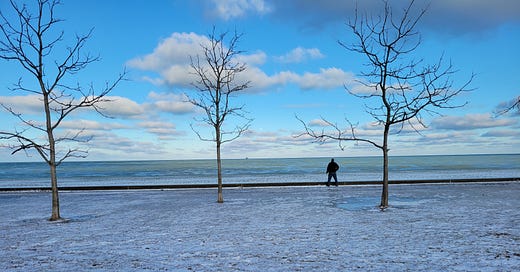


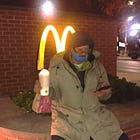
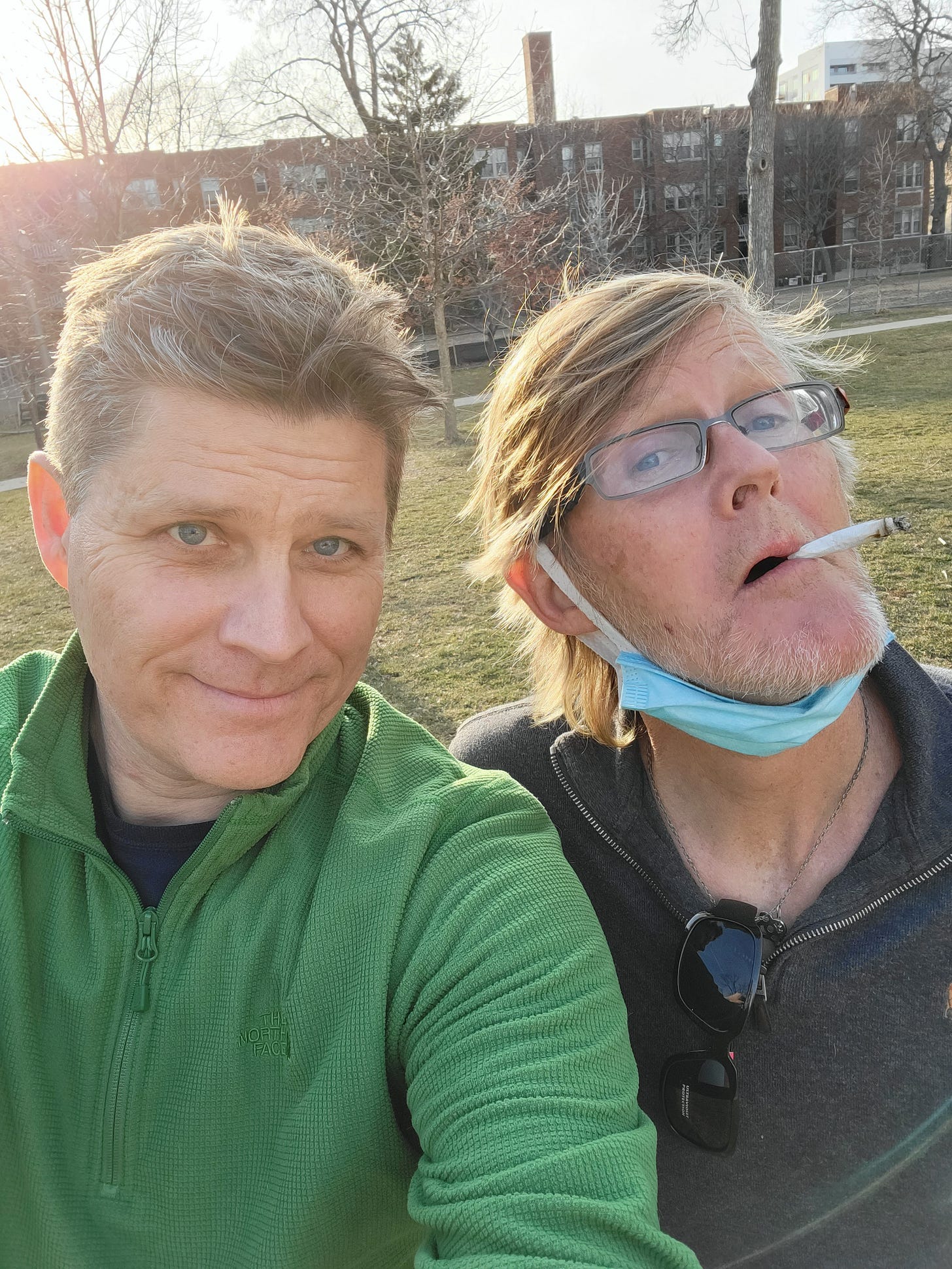
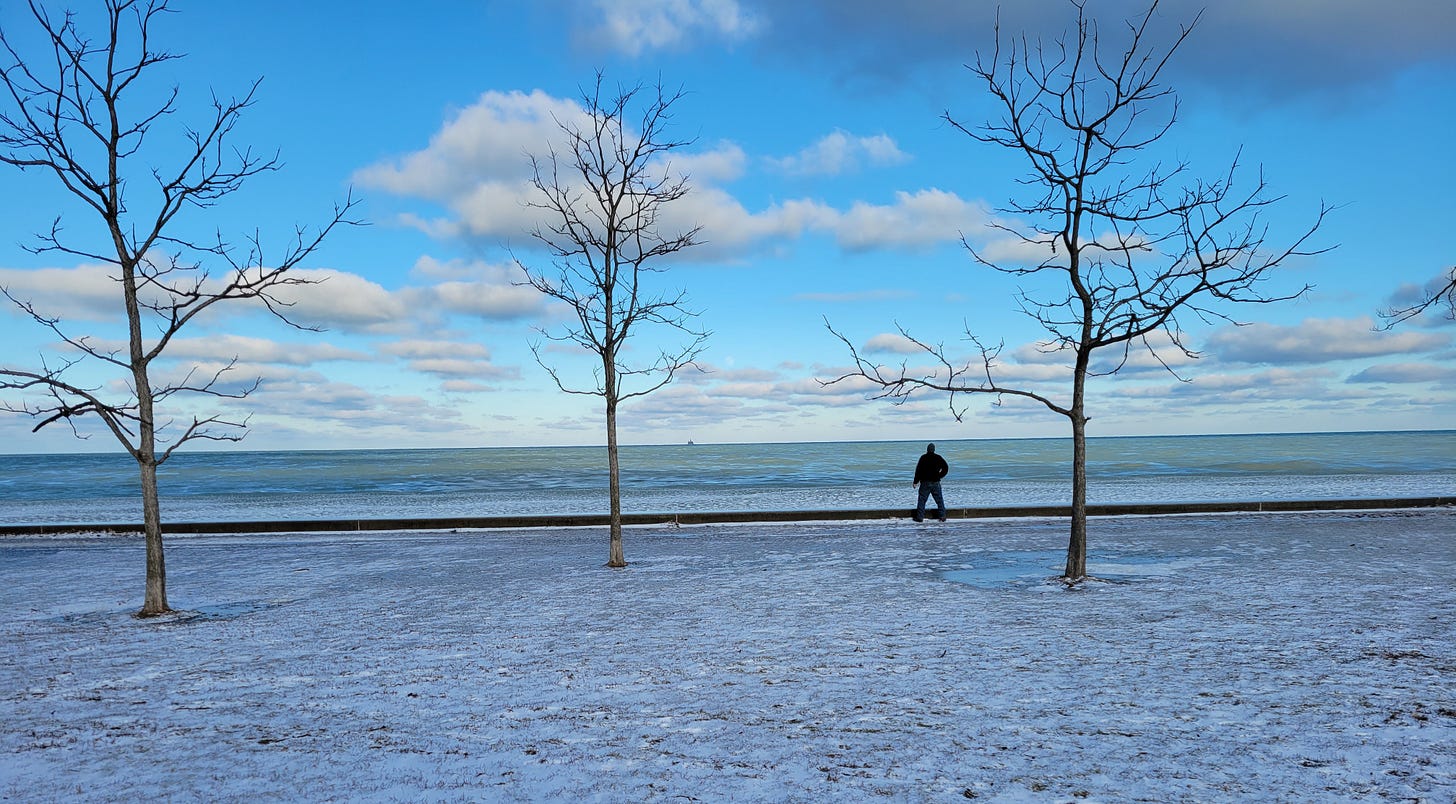
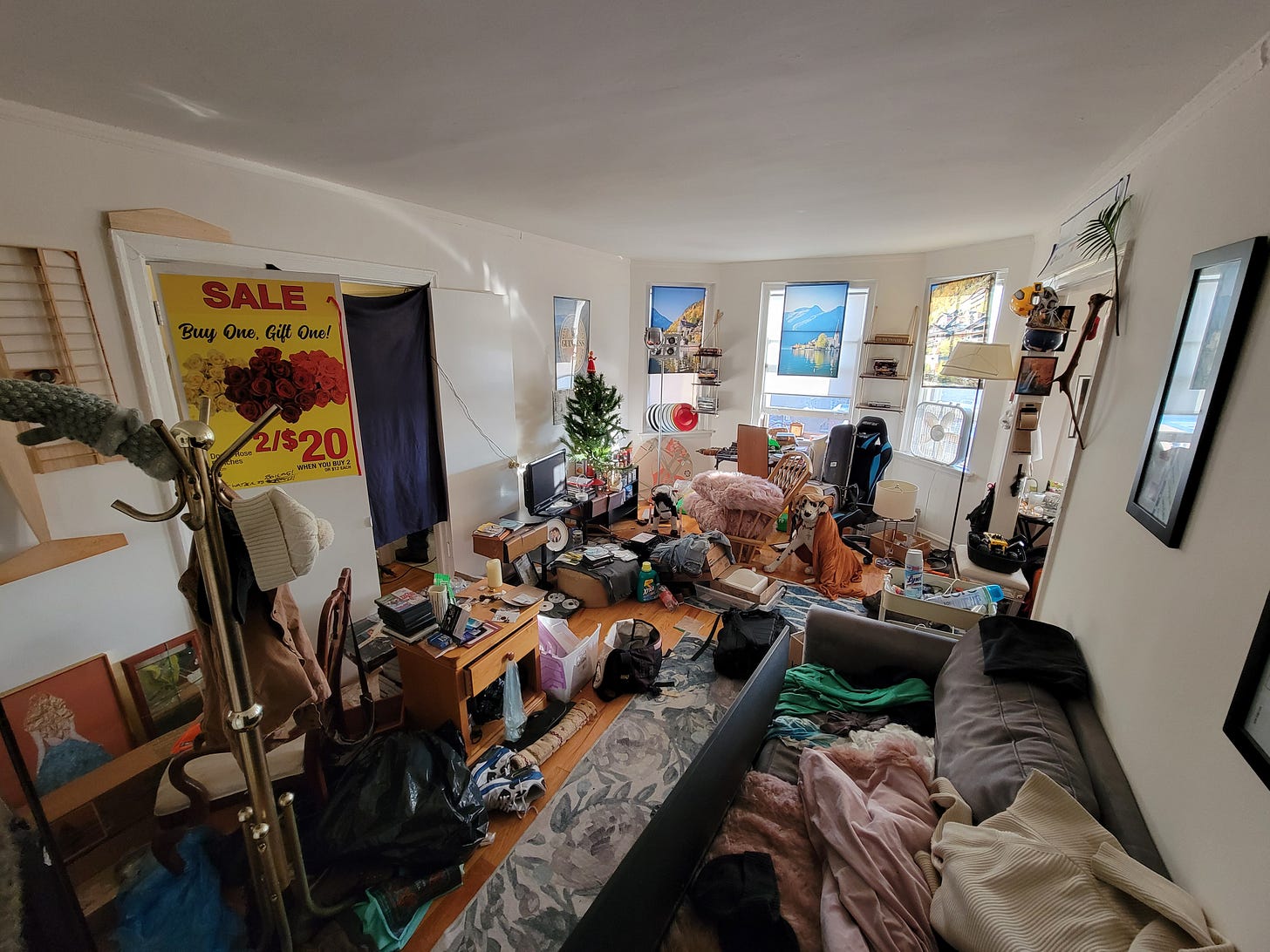
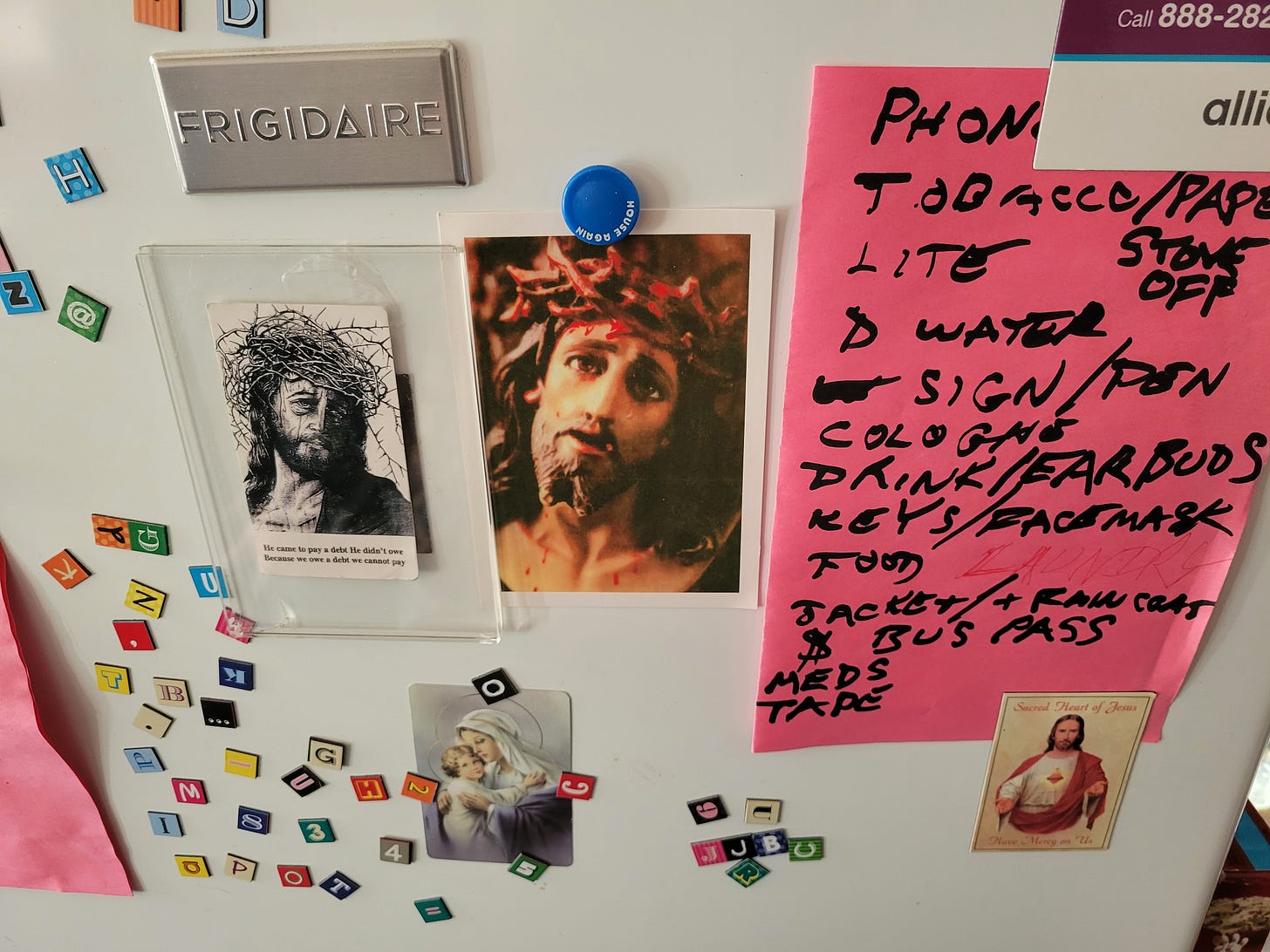
Matt, of all your work thank you for this series. The love, the poignancy, the pain, well it humanizes this life and world, we are more than our instagram moments. The photo you took of Phil along the lakefront, masterful. Beautiful work and on so many levels. I think it worthy of a national audience.